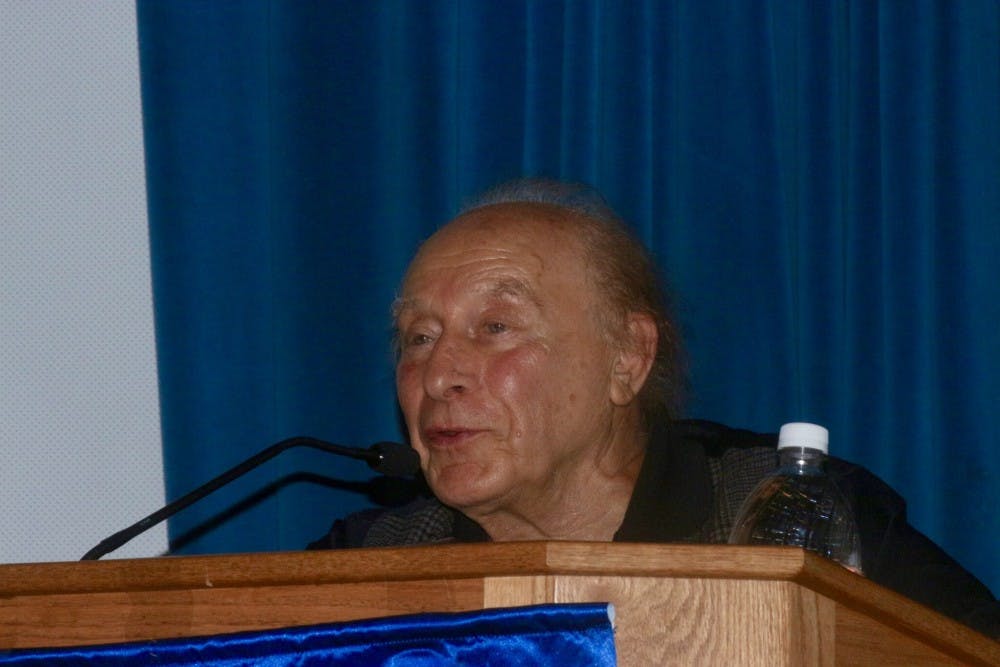When he was 15 years old, Tibor Spitz crawled out of a hand-built shelter and dug into the side of a hill in Slovakia where he had spent the previous seven months hiding from the German army. 73 years later, he walked into the Student Union Auditorium to help ensure that people do not forget the horrors he and other Jewish people endured during the Holocaust.
Spitz is not only a Holocaust survivor but also an engineer, Ph.D. holder and an artist. He used a combination of anecdotes and samples of his artwork to tell his story to the gathered audience. One of only six members of his extended family who avoided deportation and death, Spitz makes sure the Holocaust is remembered through his speeches and his art. His unique style and subject matter has led Spitz to show his art in galleries across Europe and America.
“I developed a very different style of painting,” Spitz said. “It’s not pointillism or French impressionist. It’s not Van Gogh with his lines. It’s something impressionists missed and I subconsciously discovered. I call it blobism.”
Along with their distinctive blobs, Spitz’s works can be identified by the bright colors he uses to address dark themes and events.This choice helped him cope with the events of his past.
“It is very easy to cry over a sad event; it is very easy to have a negative reaction to a negative input; it is very easy to be unhappy about unhappiness,” Spitz said. “That logic didn’t work for me. If I want to overcome a reason for unhappiness, I have to fight it with happiness. If I want to overcome negative forces, I have to approach it positively.”
UNC Hillel, the organization that held the event, takes Holocaust remembrance seriously, said Liron Benjamin, the organization’s Holocaust Education Chair.
“We want to make sure that as time moves further away from when the Holocaust occurred that people still know and acknowledge what happened,” Benjamin said. “We felt that by bringing a survivor to speak we could give students an experience that they could hold onto and would stick in their mind.”
Benjamin chose to bring Spitz to talk because he has a personal connection to him. When Benjamin’s parents immigrated to New York, they became friends with Spitz, who Benjamin has known since birth. When UNC Hillel was looking for a speaker, Benjamin immediately thought of Spitz.
“I knew he had an experience that was worth sharing,” he said. “And I felt that his position as both an artist and a Holocaust survivor would be interesting to students.”



